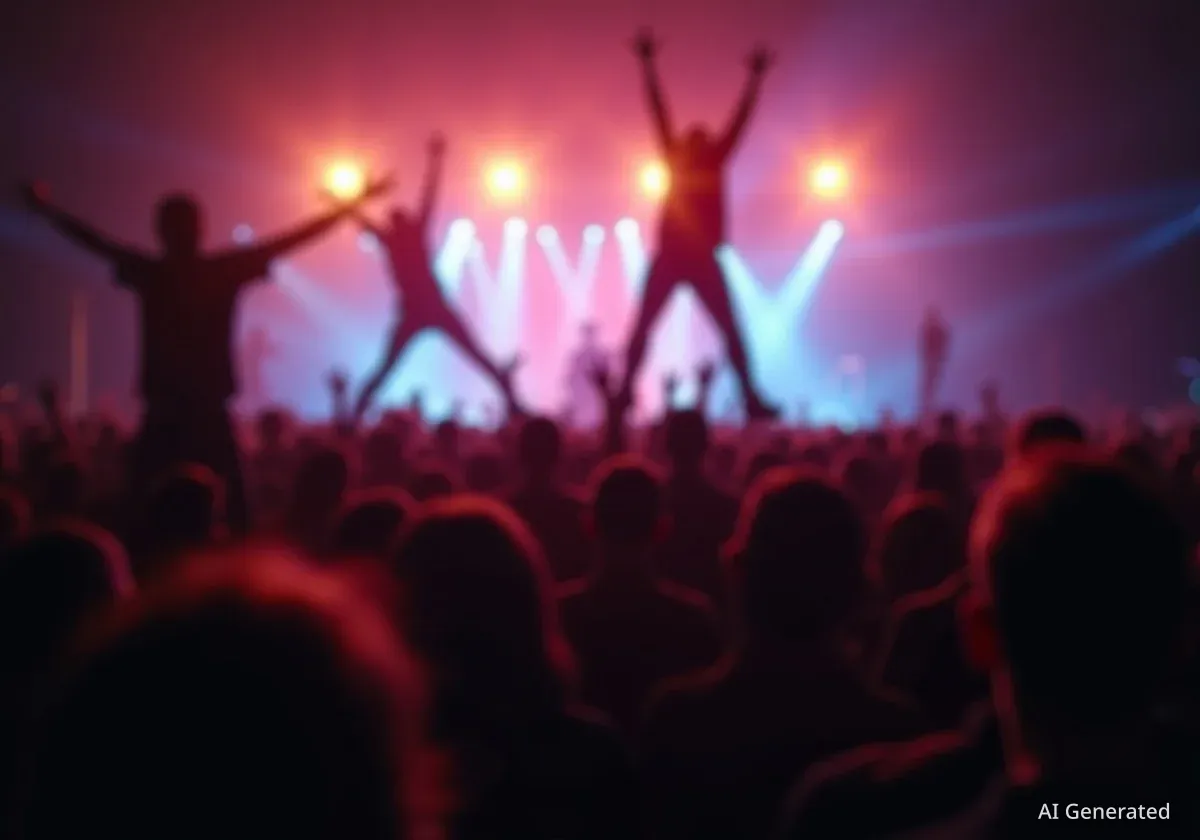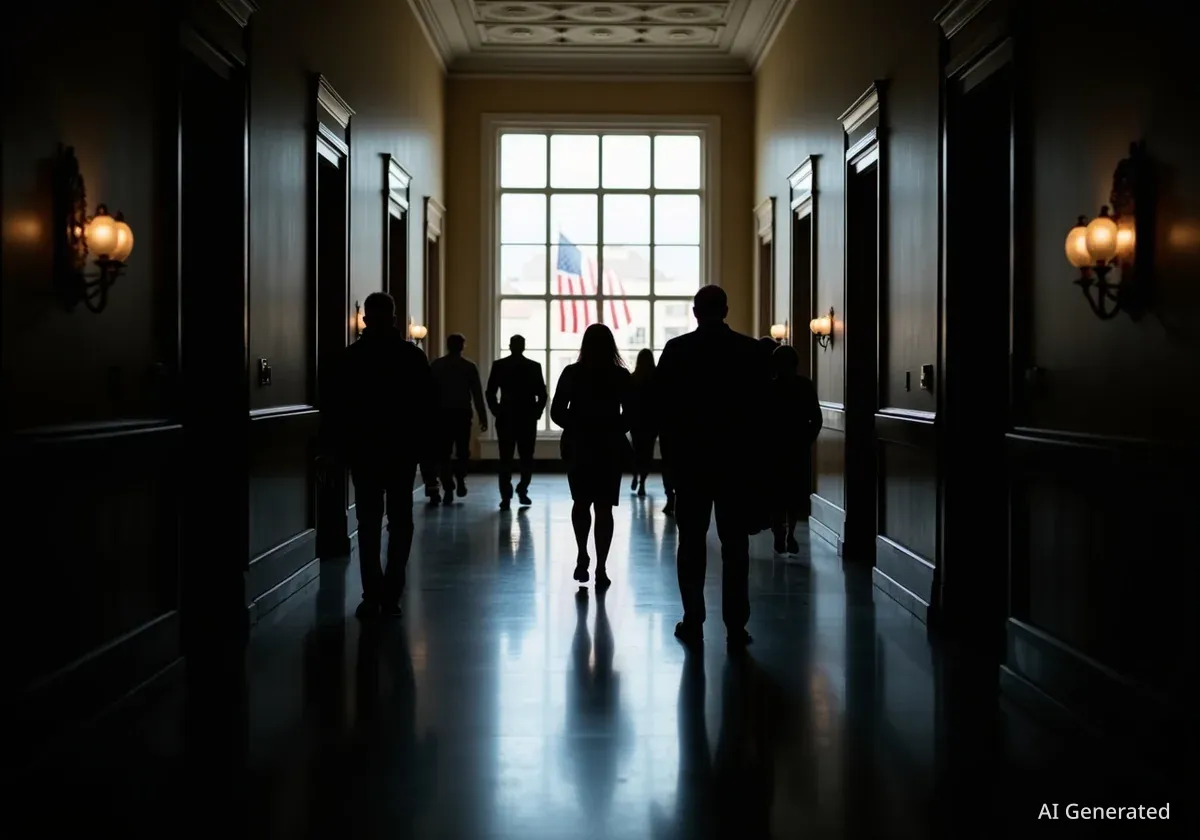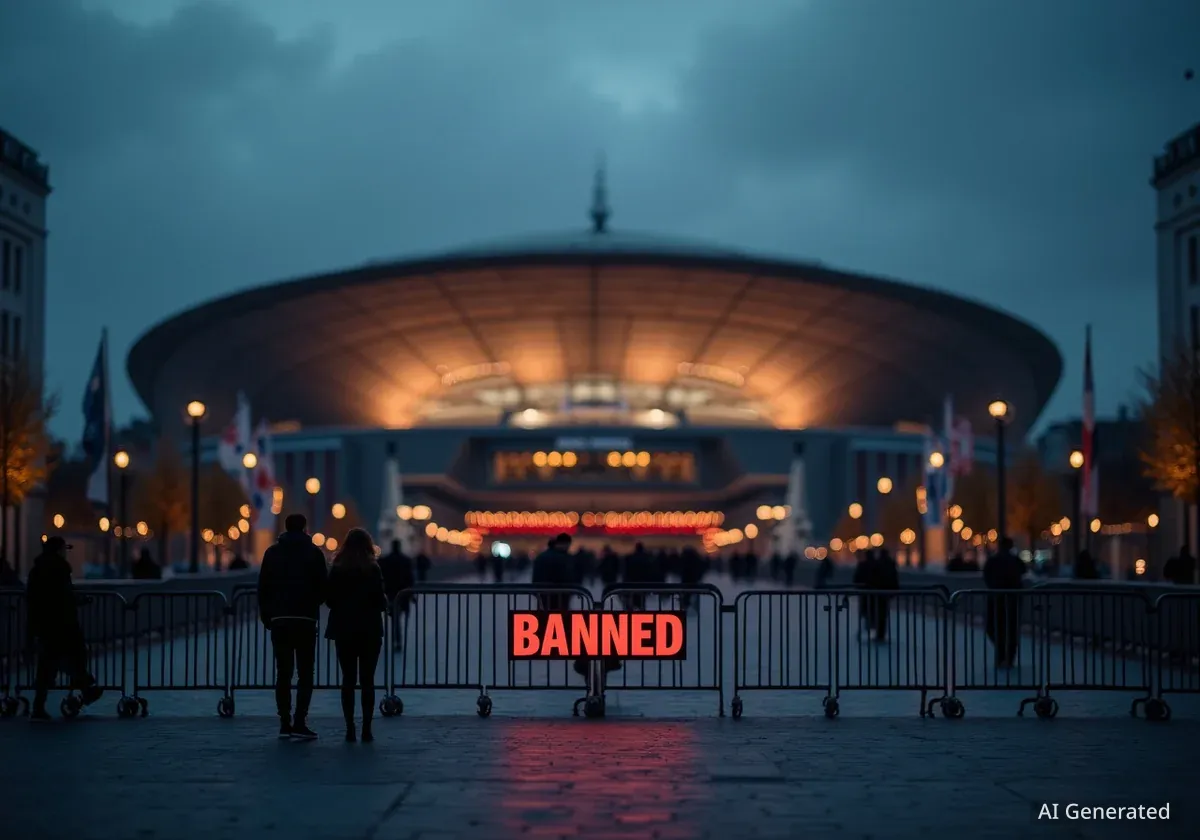Attendees at the Louder Than Life festival have reported issues with crowd safety during the Sleep Token performance. Multiple accounts describe concert-goers being dropped while crowd surfing, leading to injuries. Concerns about general audience etiquette have surfaced, particularly regarding a lack of assistance for crowd surfers.
Key Takeaways
- Sleep Token fans faced criticism for behavior at Louder Than Life festival.
- Reports cited crowd surfers being dropped, causing injuries.
- One attendee suffered a concussion and seizure after being dropped.
- Witnesses heard calls to "Drop that b***h" directed at crowd surfers.
- Over 50 people reportedly needed medical attention near the ASL area.
Concerns Over Crowd Surfing Incidents
During the Sleep Token set at the recent Louder Than Life festival, several attendees reported unsafe crowd surfing incidents. These events sparked a discussion within a festival-specific Facebook group, where people shared their experiences and frustrations. The core issue involved crowd surfers not being properly supported and, in some cases, being intentionally dropped by others in the crowd.
One individual shared a video showing themselves falling hard after attempting to crowd surf. Another attendee posted photos from an ambulance, explaining that a crowd surfer landed directly on her head. This impact reportedly caused her to lose consciousness and experience a seizure. The incidents have led to questions about concert etiquette and collective responsibility for safety.
Fact Check
- Event: Louder Than Life Festival
- Band: Sleep Token
- Reported Incidents: Crowd surfers dropped, leading to injuries.
- Specific Injury: One attendee reported a concussion and seizure after a crowd surfer fell on her head.
Eyewitness Accounts Detail Unsafe Behavior
An attendee present in the ASL (American Sign Language) viewing area provided a detailed account of the events. She stated that she heard people shout "Drop that b***h" concerning a crowd surfer. She also observed that instead of offering help, many individuals allowed crowd surfers to fall directly into the audience. This behavior contradicts the generally accepted practice at rock and metal shows, where attendees are expected to support crowd surfers and guide them safely.
The witness further elaborated on the medical response needed. She reported that medical workers had to transport over 50 people to the medical tent from her vicinity alone by the end of the set. This high number suggests a significant pattern of injuries and a breakdown in crowd management or audience cooperation.
"I’ve lost a lot of respect for some Sleep Token fans after this festival. Crowd surfing is a completely normal part of rock shows. When you see someone surfing, you’re supposed to help them and be their wave to the shore."
Impact on Special Assistance Viewers
For attendees in the ASL area, the chaotic crowd behavior also created difficulties. The individual mentioned that her view of the interpreter became obstructed due to the constant movement and medical interventions. This prevented her from fully enjoying the performance without distraction.
The disruption highlights how unsafe crowd actions can affect not only those directly involved but also other audience members, especially those requiring special assistance or specific viewing arrangements.
Call for Improved Concert Etiquette
The attendee's Facebook post also included a strong message about proper concert etiquette. She emphasized the responsibility of those near the barricade to assist crowd surfers. "If you love Sleep Token and want to be up close at the barricade, you need to accept the package that comes with it," she wrote. This "package" includes helping crowd surfers, watching for incoming individuals, and ensuring safe landings.
She suggested that if individuals are unwilling to take on this responsibility, they should choose a different viewing spot, such as the lawn or the side of the stage. Her post concluded with a call for a shift in behavior: "Next time, instead of shouting 'drop the b***h,' shout 'be their wave' and help them land safely."
Concert Etiquette at Metal Shows
At many rock and metal concerts, crowd surfing is a common activity. The unwritten rule is that when someone surfs over the crowd, those below should support them and help guide them towards the stage or security. This collective effort ensures the safety of the crowd surfer and minimizes risks to those on the ground. Intentional dropping or failing to assist is widely considered a breach of this communal understanding.
Wider Observations on Audience Engagement
Beyond the safety concerns, other fans noted a general lack of engagement from some Sleep Token attendees. One concert-goer observed that the band attempted to initiate a mosh pit multiple times, but these efforts were largely unsuccessful. This suggests a disconnect between the band's performance style and the audience's participation.
The reported issues contribute to a broader discussion about evolving concert etiquette. The return to live events after global lockdowns may have led to a decrease in familiarity with established norms for large gatherings. While this is not an excuse for unsafe behavior, it suggests a need for renewed education on how to behave responsibly at shows, especially regarding the safety of others.
- Responsibility: Attendees closest to the stage are expected to assist crowd surfers.
- Alternative: Those unwilling to help should position themselves further back.
- Call to Action: Promote supportive behavior, like "be their wave."
The incidents at Louder Than Life highlight the importance of maintaining a safe environment at music festivals. Both individual responsibility and collective action are crucial for ensuring that all attendees can enjoy live performances without fear of injury.




